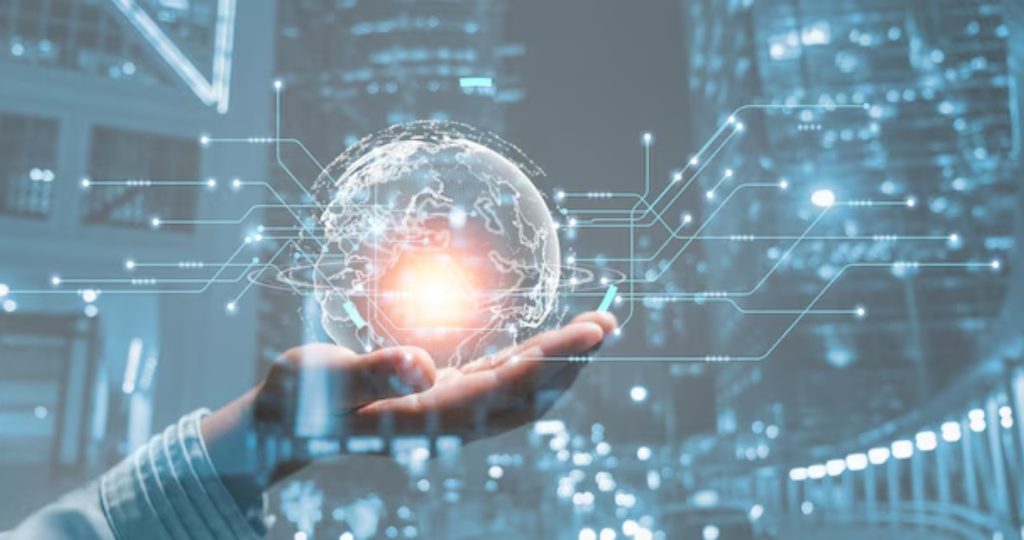Artificial intelligence (AI)
Artificial intelligence (AI) is no longer a science fiction concept but has become an indispensable part of modern life. From the smartphone you hold in your hand to the complex systems in various industries, AI is reshaping how we live, work, and interact with the world around us. The powerful rise of artificial intelligence brings tremendous opportunities, while also posing significant challenges that require careful consideration and preparation.
The history of the development of artificial intelligence has gone through many ups and downs. Early ideas about machines capable of thinking appeared long ago in literature and philosophy. However, it was not until the mid-20th century, with the advent of electronic computers, that AI truly became a serious scientific research field. Pioneering scientists laid the foundation for the first AI algorithms and models, ushering in a new era of automation and data analysis.
In recent decades, artificial intelligence has made remarkable progress thanks to the development of computing power, massive amounts of data (big data), and advanced machine learning algorithms. Deep learning, a branch of machine learning, has proven its ability to solve complex problems such as image recognition, natural language processing, and trend prediction with increasing accuracy. These breakthroughs have brought artificial intelligence out of the laboratory and into real-world applications across countless fields.
One of the most common applications of artificial intelligence is in the field of communication and interaction. Virtual assistants like Siri, Alexa, and Google Assistant have become familiar to millions of users, helping them perform daily tasks such as scheduling appointments, searching for information, or controlling smart home devices. It also plays a crucial role in the development of intelligent chatbots, providing 24/7 customer service and answering user queries quickly and efficiently.
- In the healthcare sector, artificial intelligence is bringing about revolutionary changes. AI systems can analyze medical images to detect early signs of serious diseases like cancer, assist doctors in diagnosis, and provide personalized treatment plans for each patient. It is also used in drug research and development, helping to shorten the time and reduce the cost of this process.
- The manufacturing industry is also witnessing a significant transformation thanks to artificial intelligence. Robots equipped with AI can perform repetitive, dangerous, or high-precision tasks, helping to increase productivity, reduce errors, and improve working conditions for humans. AI is also used in supply chain management, predicting market demand, and optimizing production processes.
- The financial and banking sector is also within the sphere of influence of AI. Its algorithms are used to detect fraud, assess credit risk, provide personalized investment advice, and automate transactions. It helps financial institutions operate more efficiently, reduce risks, and enhance customer experience.
- Transportation is another area being reshaped by artificial intelligence. Self-driving cars, one of the most prominent applications of AI, promise a future of safer, more efficient, and environmentally friendly transportation. It is also used in intelligent traffic management, optimizing traffic flow and reducing congestion.

However, the rapid development of artificial intelligence also poses significant challenges. One of the biggest concerns is the impact of Ai on the labor market. The automation of tasks could lead to job losses in some industries, requiring society to find solutions for retraining the workforce and creating new job opportunities.
In addition, the ethical and responsible development and use of AI also requires special attention. AI systems can carry biases and prejudices from their training data, leading to unfair or discriminatory decisions. Ensuring the transparency, fairness, and accountability of artificial intelligence is an urgent task.
Furthermore, the issue of data security and privacy becomes more important than ever in the context of AI increasingly collecting and processing large amounts of personal information. Strict regulations and safeguards are needed to prevent data misuse and ensure user privacy.
The future of artificial intelligence is both promising and challenging. To maximize the potential of AI and minimize potential risks, close collaboration is needed between scientists, policymakers, businesses, and the community. Investing in the responsible research and development of AI, building appropriate legal frameworks, and raising public awareness about AI are key factors in ensuring that AI truly serves the benefit of humanity. The dawn of AI has begun, and we stand at a historic opportunity to shape our own future.
